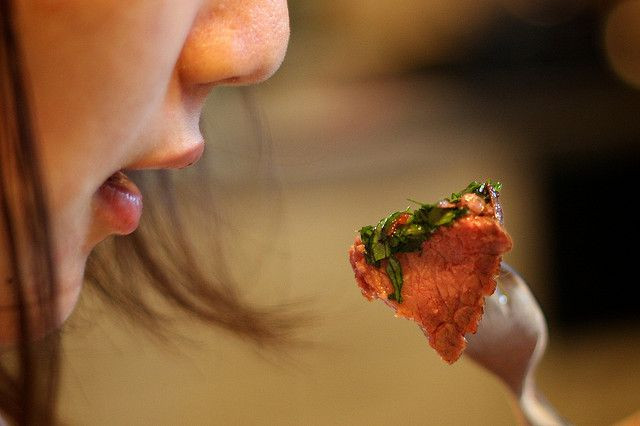'Hangry' Is A Real Thing: Hunger Pangs Not Only Worsen Your Mood, But Trigger Risky Behavior

It's no secret being hungry can affect your overall mood, resulting in an emotion sometimes described as "hangry," but could it also be making you engage in risky behavior? Researchers at the Max Planck Institute of Neurobiology in Martinsried analyzed signals in the brains of fruit flies that were put in a situation where hunger was coupled with a threatening limitation.
"If the fly is hungry, it will no longer rely on the 'direct line' but will use brain centres to gauge internal and external signals and reach a balanced decision," the study's lead researcher Ilona Grunwald-Kadow stated.
"It is fascinating to see the extent to which metabolic processes and hunger affect the processing systems in the brain."
The research team headed up by Grunwald-Kadow placed a test group of fruit flies in an environment with carbon dioxide or a mixture of carbon dioxide and the smell of food. Past research has shown that when fruit flies sense even the slightest amount of carbon dioxide in the area, they will immediately fly away.
Throughout the course of their analysis, researchers noticed that fruit flies situated in an environment with both the smell of food and carbon dioxide were less inclined to leave the area. Their evaluation is supported by the fact that rotting fruits and vegetables, the fruit fly's main sources of food, emit carbon dioxide.
Further investigation led to the discovery of a nerve cell essential to triggering the flight response in hungry fruit flies. It was determined that this projection neuron was responsible for relaying carbon dioxide information to different areas of the brain.
"In fed flies, nerve cells outside the mushroom body are enough for flies to flee from the carbon dioxide. In hungry animals, however, the nerve cells are in the mushroom body and the projection neuron, which carries the carbon dioxide information there, is essential for the flight response," Grunwald-Kadow explained.
"If mushroom body or projection neuron activity is blocked, only hungry flies are no longer concerned about the carbon dioxide."
The research team is confident the findings in their report are replicable in many species of animals, including humans. Grunwald-Kladow pointed to a recent study that suggested hungry people are more likely to take financial risks such as gambling.
Source: Bräcker L, Siju K, Varela N, et al. "Hunger affects decision making and perception of risk." Max Planck Institute of Neurobiology. 2013.
Published by Medicaldaily.com



























